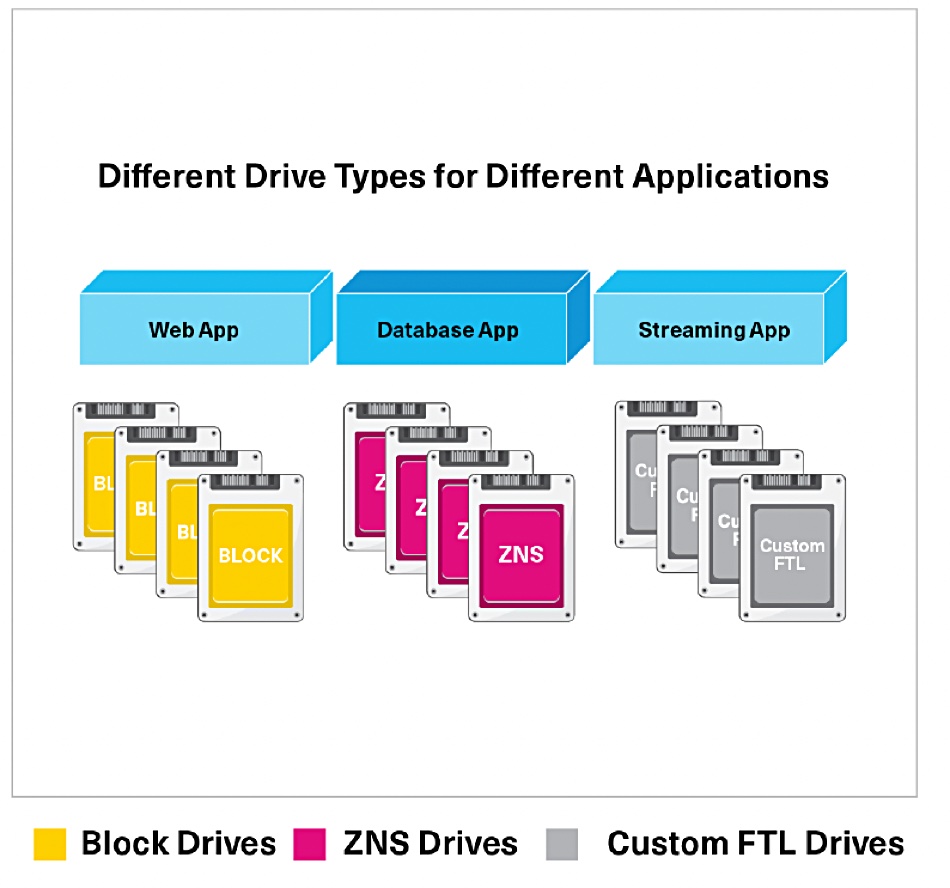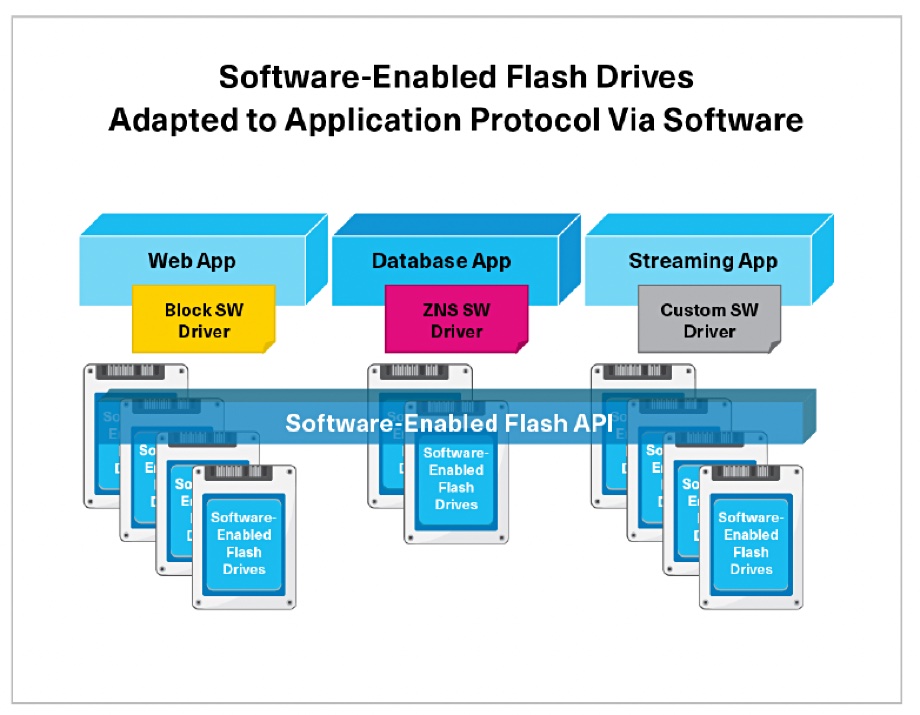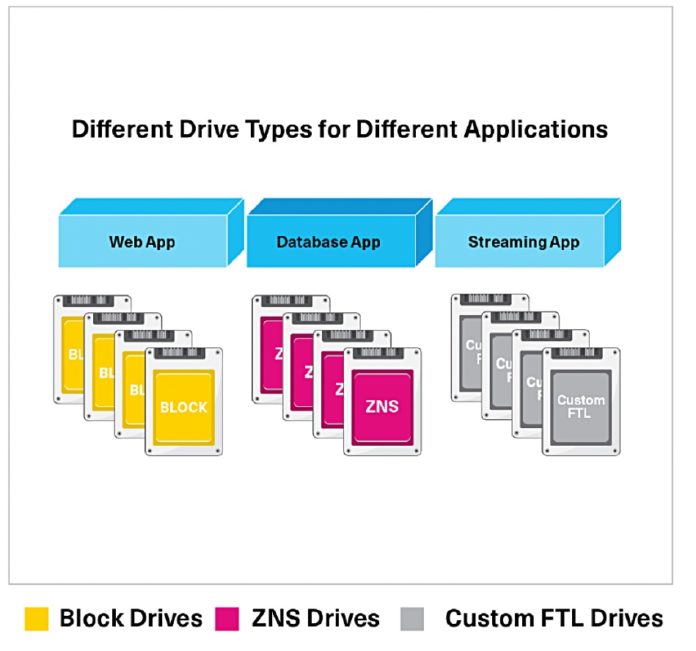Kioxia has been talking about its software-defined flash technology at this week’s SNIA Storage Developer Conference and introduced a new Software-Enabled Flash SDK to speed the development of software drivers.
The SSD-using market is seeing the development of application-specific flash drives, separate from the base standard SSD with its block interface. They include key:value store SSDs, zoned namespace SSDs, and even customer Flash Translation Layer SSDs for hyperscalers. The problem Kioxia highlights is a hyperscaler one because such customers will have large populations of flash drives, making change-overs of drive technology and supplier problematical.
They can end up with sub-populations of drives of a particular sort, facing costly and inconvenient migrations to adopt new technology. The trouble is that drive format types — such as key:value stores and zoned namespaces — are hard-coded into the drives and also require host software control, locking these drives into specific application use and preventing their re-use for different applications. It would be good for hyperscalers if their key:value store drives could also be used or re-used for zoned namespace applications and block applications.

That’s what Kioxia is doing: creating a flash drive API-based interface that enables SSD operators to reprogram their drives and thereby create a base population of SSDs which can be purposed for specific applications under software control, and then repurposed for different applications.
The drives have a controller and software on them that accept API-delivered instructions, giving access to SSD features down to the die level. New drive types — say QLC drives replacing TLC drives — can have the same design, enabling the host software to drive them in the same way and speed their adoption.

A Kioxia tech brief describes this concept and explains that Kioxia’s software-defined flash tech is open-source and SNIA support is being sought.
The test of whether this idea is generally adoptable will be to see if other SSD suppliers line up and support it, such as Micron, Samsung, SK hynix and Kioxia partner Western Digital — a supporter of the zoned namespace idea. Check out a section of Kioxia’s web site to explore the concept in more detail.








